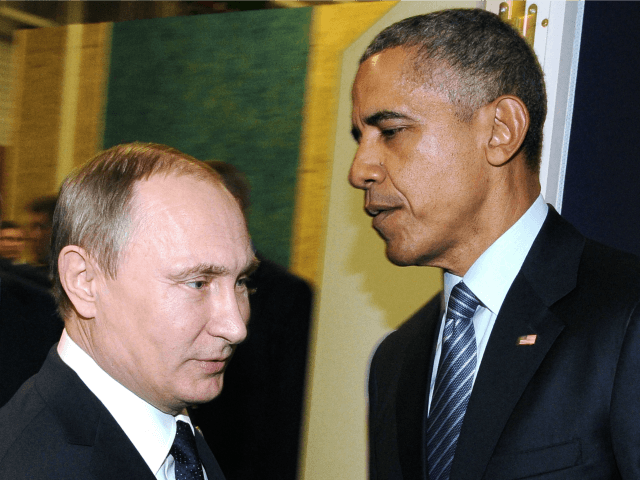TEL AVIV – In an oped published at Politico, Dennis Ross, former Middle East adviser to President Barack Obama, declared that Israel and Arab countries are increasingly turning to Russia because the United States is seen as “weak” and Middle Eastern leaders have “given up” on Obama.
Ross claims that even though the U.S. has substantially more military capability in the Middle East than Russia, leaders in the region are choosing Russian President Vladimir Putin over Obama “because perceptions matter more than mere power: The Russians are seen as willing to use power to affect the balance of power in the region, and we are not.”
Ross cites Israeli Prime Minister Benjamin Netanyahu’s recent visits to Moscow as well as King Salman of Saudi Arabia’s planned trip.
Obama, writes Ross, “believes in the use of force only in circumstances where our security and homeland might be directly threatened. His mindset justifies pre-emptive action against terrorists and doing more to fight the Islamic State. But it frames U.S. interests and the use of force to support them in very narrow terms.”
On the other hand, avers Ross, Putin is not afraid to use coercion and even force to achieve political objectives.
Ross also notes Iran’s increasingly aggressive behavior in the region in the aftermath of the Iran deal, disparaging the U.S.’s hesitancy to place limits on the Islamic Republic.
Saudi Arabia, in particular, is concerned with the way the U.S. is handling Iranian expansionism.
“Obama’s recent trip to Saudi Arabia did not alter the perception of American weakness and our reluctance to affect the balance of power in the region. The Arab Gulf states fear growing Iranian strength more than they fear the Islamic State – and they are convinced that the administration is ready to acquiesce in Iran’s pursuit of regional hegemony,” Ross writes.
In order to reverse the trend, Ross asserts that it is incumbent on the U.S. to persuade Middle Eastern states that “America’s word is good and there will be no more ‘red lines’ declared but unfulfilled; that we see the same threats they do; and that U.S. leaders understand that power affects the landscape in the region and will not hesitate to reassert it.”
This entails toughening its policy toward Iran if it reneges on the nuclear agreement, including “employing force, not sanctions, should the Iranians violate their commitment not to pursue or acquire a nuclear weapon.”
The U.S. must also “launch contingency planning with GCC states and Israel – who themselves are now talking – to generate specific options for countering Iran’s growing use of Shiite militias to undermine regimes in the region.”

COMMENTS
Please let us know if you're having issues with commenting.